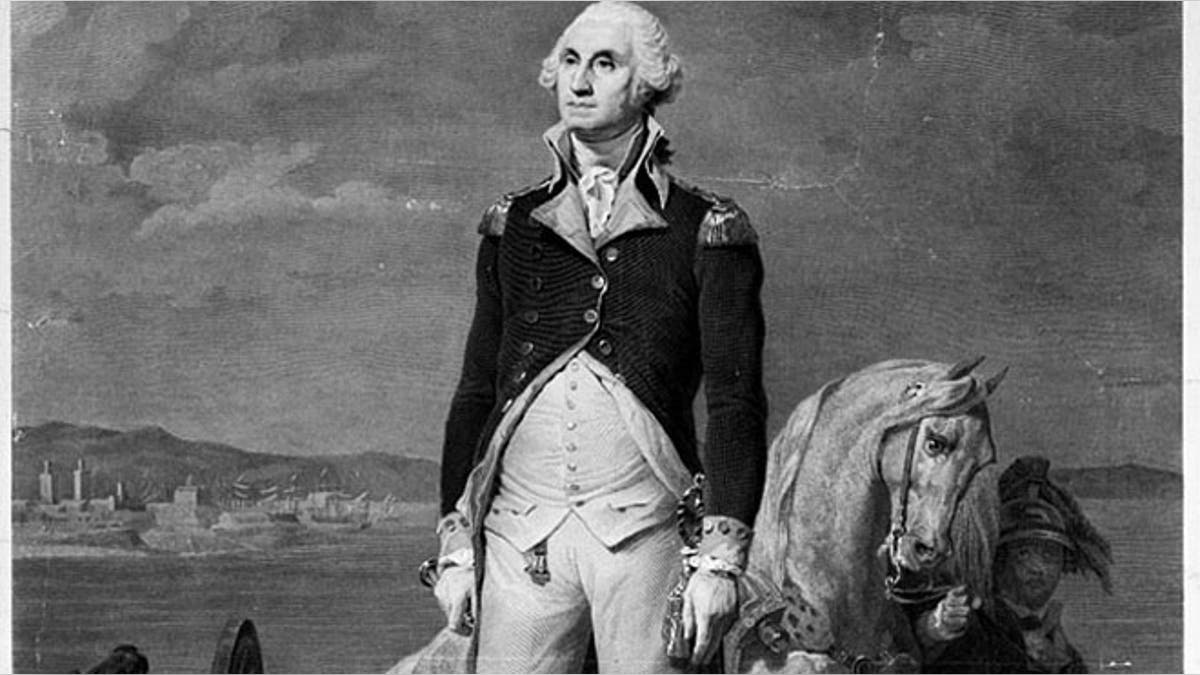
(Library of Congress)
George Washington wrote in 1759, “Discipline is the soul of an army. It makes small numbers formidable; procures success to the weak and esteem to all.” According to Amy Chua and Jed Rubenfeld’s provocative new book, “Triple Package,” our first president was onto something. (Full disclosure: I am close with Chua and Rubenfield).
Why do some Americans succeed while others fail? Chua and Rubenfeld seek to define the ingredients for success. Filled with surprising statistics and sociological research, "Triple Package" proposes three characteristics that combine to propel individuals:
1. Insecurity, which drives a person to prove himself.
2. A superiority complex, which instills confidence.
3. Impulse control, which provides the fortitude to soldier on despite inevitable adversity.
As we face a growing pessimistic chorus decrying America’s decline, it is worth revisiting our nation’s successful roots as we plan for its future. The “Father of Our Country,” George Washington, serves as a stunning case study with which to test the Triple Package theory:
1. Insecurity: Despite the popular misconception that Washington was born into wealth, he actually came from modest beginnings. After losing his father at age 11, Washington struggled to help care for his siblings and eccentric mother, and was unable to obtain the classical education for which he yearned.
This turbulent upbringing instilled in him both a sense of insecurity as well as a tremendous drive for approval and monetary stability.
To prove his worth, Washington took staggering risks. Early in his military career, in fact, his fear of ridicule helped lead him to attack a French diplomatic party, thereby sparking the worldwide Seven Years War.
But Washington’s perceived inadequacies provided drive. Fearing grammatical errors would expose his lack of European education, for example, he painstakingly taught himself to write, and he methodically proofread every letter.
Further, Washington surrounded himself with better educated statesmen and more experienced tacticians than himself, humbly seeking advice from men such as Alexander Hamilton, Thomas Jefferson and James Madison.
The United States was born an insecure nation that struggled not only to define itself but just to survive. For his part, Washington harnessed these national insecurities along with his personal ones as a means to stay humble and work harder to prove himself to the world.
2. Sense of Superiority: After one particularly gruesome battle, Washington wrote his brother, “I now exist and appear in the land of the living by the miraculous care of Providence . . . . I had 4 Bullets through my Coat, and two Horses shot under me, and yet escaped unhurt.”
As paradoxical as it may seem, even while harboring insecurities, Washington nevertheless had tremendous faith in himself and his country.
During the Revolution, Washington faced the vastly more powerful British military. But he believed that the virtue of the revolutionary cause would make up for Americans’ lack of experience, training and supplies.
“Let us therefore animate and encourage each other,” he declared, “and show the whole world that a freeman, contending for his liberty on his own ground, is superior to any slavish mercenary on earth.”
Washington and the Founders’ belief in American exceptionalism provided the temerity necessary to fight for their liberties and establish a bold new nation.
3. Impulse Control: When 18th century artist Gilbert Stuart was commissioned to paint Washington’s portrait, he commented that the great man’s unusual features were “indicative of the strongest and most ungovernable passions, and had he been born in the forests . . . he would have been the fiercest man amongst the savage tribes.”
Stuart wrote of Washington’s “great self-command [that] always made him appear a man of a different cast in the eyes of the world.”
He was right. Throughout his life, Washington trained himself not only to mask his emotions, but to coolly suppress his immediate urges.
Sure,he wrote of his desire to return home during the cold winters of the war. But he wanted to lead a fledgling nation to victory even more.
From the nation’s start, Washington and the Founders believed that hard work and sacrifice meant success for the future. This was the start of the American dream.
"Triple Package" contends that success is driven not by inborn biology, but is instead propelled by qualities that can be cultivated by all Americans.
The book serves as an opportunity to discuss what has helped drive America’s triumphs in the past – and how we might harness this knowledge for our future.
George Washington shows how one individual’s success can better the world. He grew up fearing failure to become the Father of Our Nation, successfully fighting for our liberties.
Now that is worth emulating.








































